Giant's Causeway: Public right of way to be protected
- Published
- comments
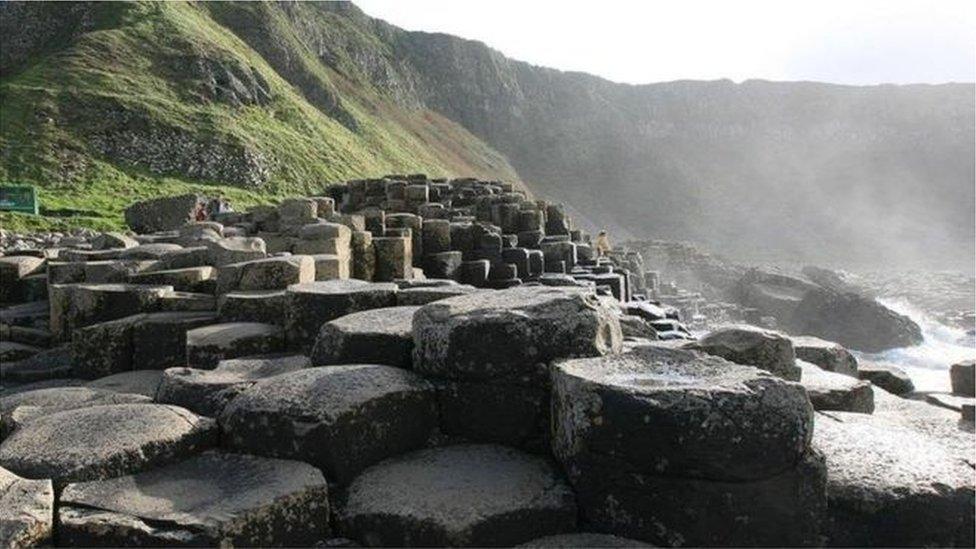
The Giant's Causeway is Northern Ireland's most popular tourist attraction
Signs belonging to the National Trust near the Giant's Causeway may be challenged after a council voted to protect public access to the site.
The signs tell the public they are accessing the famous tourist spot with the National Trust's "permission".
The trust operates a visitors' centre at the Unesco World Heritage site but the public can also visit the causeway free of charge from certain pathways.
The trust said it was working with the council over "public rights of way".
'Misleading signs'
The signs, which were erected last year, prompted ramblers and residents to complain to Causeway Coast and Glens Council.
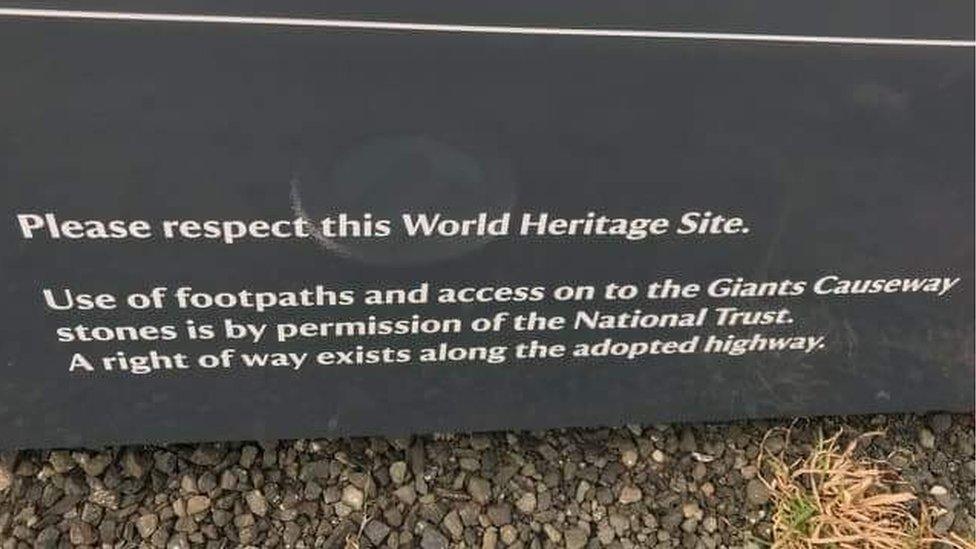
One of the National Trust signs at the Giant's Causeway
At a meeting of the council's Leisure and Development Committee, external on Tuesday night, a motion was proposed to "protect all public right of way" in the borough.
The motion claimed the signs could "mislead the public" into believing they do not have an automatic right to walk in some of "the most iconic parts" of the world heritage site.
It was proposed by Independent councillor, Padraig McShane, who told BBC News NI it was passed "without challenge".
Ulster Unionist councillor, Norman Hillis, also confirmed that elected members had "voted unanimously" in favour of protecting public rights of way.
'Retrograde step'
Mr McShane said he had received several complaints from walking groups and local residents.
He described the signs as a "retrograde step" and claimed that many of the trust's activities at the causeway appeared to be designed to "pull in money".
The Giant's Causeway is the most popular visitor attraction in Northern Ireland, receiving more than 1m visitors last year.
The National Trust runs a very successful visitors' centre at the site, which opened in 2012 at a cost of £18.5m.
The experience can cost up to £11.50 per adult or £28.75 for a family of five.
However, access to the causeway itself is free.
'Monopoly'
Businessman Mark Rodgers, who runs Dalriada Kingdom Tours, guides visitors along the paths to the famous stones every day.
He said that in his experience, most visitors still arrive at the causeway with the mistaken belief that they have to pay to reach the stones.
He told BBC News NI he strongly objects to the trust "claiming ownership" of public rights of way.
Mr Rodgers also accused the trust of trying to "dominate" and "monopolise" the Giant's Causeway, pointing out that the charity had previously objected to a rival hotel development and closed an independent souvenir shop.
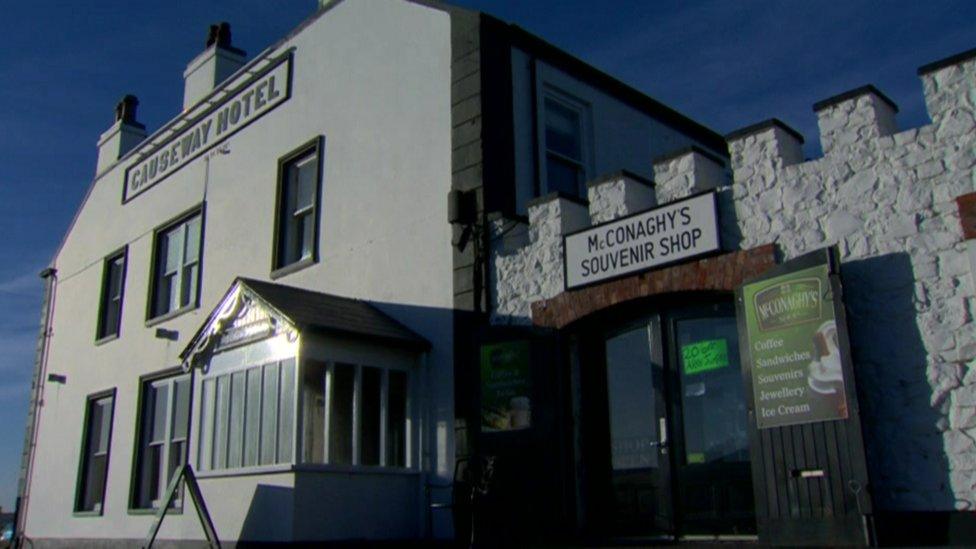
The National Trust said it needed the shop's site to build new toilet facilities
In a statement, a spokeswoman for the trust said: "As a conservation charity, the National Trust is the guardian of the Giant's Causeway and is responsible for providing enjoyable, safe and well-managed access to Northern Ireland's only World Heritage Site.
"We are committed to working in partnership with the local community and we are actively engaging with Causeway Coast and Glens Borough Council on public rights of way at the Giant's Causeway."
'Pathway erosion'
The statement pointed out the trust also has a "responsibility to conserve and protect the site, so it can be enjoyed safely for ever by everyone."
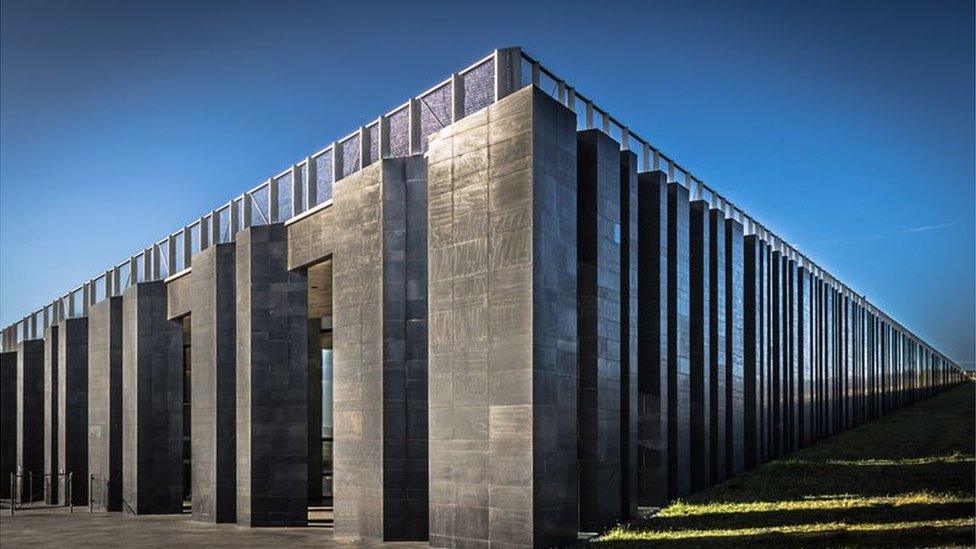
The National Trust opened a visitors' centre at the causeway in 2012
The chairman of the Ulster Federation of Rambling Clubs, Graham Seymour, told BBC News NI he was not aware of walkers' complaints about signage at the causeway.
He said he could appreciate both sides of the argument, as public pathways suffer damage and erosion which the National Trust would have to pay to repair.
However, Mr Seymour said any signage should be "sensitive" and acknowledge the public's long-established right to access the coastal beauty spot.
UUP councillor Mr Hillis also said that the trust needs to collect funds to "keep the place neat and tidy" and to provide health and safety measures.
Total shock
It is not the first time the National Trust has been involved in controversy at the causeway.
Shortly after its visitors' centre opened in 2012, the trust said it would look at concerns about signage to ensure the public realised they could still access the stones for free.
The following year, politicians from the DUP and SDLP complained about "exorbitant charges" and "sharp practice" over car parking at the site.
The trust, which also runs a 28-bedroom hotel near the causeway, was previously criticised by Stormont ministers for mounting a legal challenge to plans for a £100m golf resort and hotel complex in the vicinity.
The Runkerry resort became one of Northern Ireland's longest running planning disputes, before the project foundered in 2014.
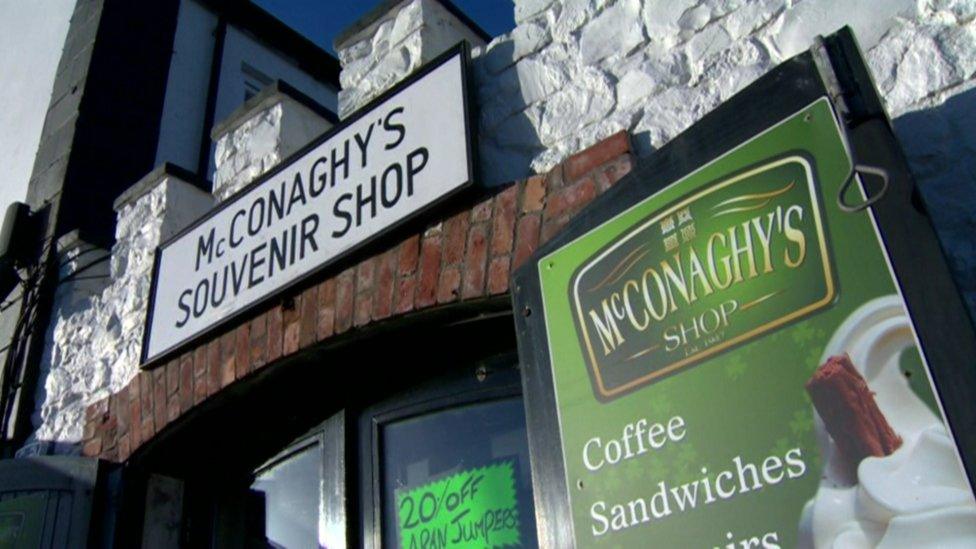
The National Trust did not renew the lease of an independent shop at the site
Earlier this year, the trust hit the headlines again over the closure of a family-run souvenir shop at the Giant's Causeway.
The shop was run by the McConaghy family for more than 70 years, until the trust declined to renew their lease which ran out in November 2017.
The trust said they needed the building to create more public toilets, but shopkeeper Tommy McConaghy said the decision came as a total shock to his family.
- Published8 January 2018
